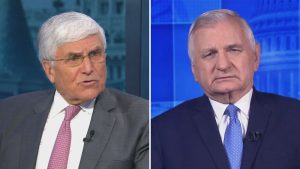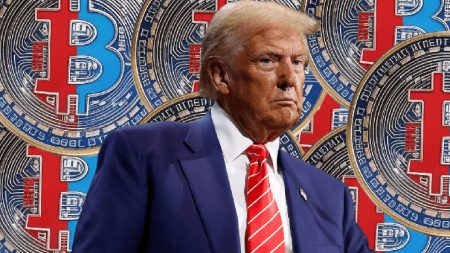A New Era for Crypto Regulation: The SEC’s Shift Under President Trump
The financial regulatory landscape in the United States is undergoing a significant transformation, particularly in its approach to cryptocurrency. In a notable development, the Securities and Exchange Commission (SEC) has agreed to drop its legal case against Coinbase, the largest U.S. crypto exchange by daily trading volumes. This decision, pending approval by the SEC’s commissioners, marks a pivotal moment in the evolving relationship between federal regulators and the digital asset industry. The abandonment of the lawsuit not only brings relief to Coinbase but also signals a broader shift in the SEC’s stance on crypto under the new administration. This change reflects President Donald Trump’s campaign promises to create a more crypto-friendly environment, with regulators adopting a softer tone toward digital assets.
From Legal Battles to Regulatory Reforms: The Trump Administration’s Pro-Crypto Agenda
The SEC’s decision to drop its case against Coinbase is part of a series of actions taken since President Trump’s inauguration, aiming to redefine the agency’s approach to digital assets. During his presidential campaign, Trump emphasized his support for the crypto industry, vowing to push the SEC to end its crackdown on cryptocurrencies and promote a more tech-friendly regulatory environment. Now, with Trump in office, these commitments are translating into tangible policy changes. The appointment of Paul Atkins, a well-known crypto advocate, as SEC chair in December 2023, underscores the administration’s commitment to fostering innovation in the digital asset space. Under Atkins’ leadership, the SEC is reversing its previous enforcement-heavy approach and embracing a more collaborative and supportive stance toward crypto companies.
Building a Framework for the Future: New Initiatives and Task Forces
In line with its new direction, the SEC has launched several initiatives to address the complexities of crypto regulation. On January 20, 2024, just one day after Trump’s inauguration, Acting SEC Chair Mark Uyeda announced the formation of a crypto task force. Led by Commissioner Hester Peirce, a vocal advocate for crypto-friendly policies, the task force is designed to explore a more balanced and forward-thinking regulatory framework for digital assets. The SEC also replaced its Crypto Assets and Cyber Unit with a new crypto crime-fighting unit, which focuses on combating misconduct in the emerging technologies space while protecting retail investors. These moves reflect the agency’s shift from enforcement to collaboration, aiming to create a more conducive environment for innovation in the crypto industry.
A Departure from the Past: How the SEC’s Approach Has Changed
The SEC’s current trajectory under President Trump contrasts sharply with its approach during the Biden administration. Under former Chairman Gary Gensler, the agency took a tough stance on crypto, launching enforcement actions against numerous digital asset companies, including Ripple Labs, Kraken, Binance.US, and Uniswap. Coinbase was also a target, with the SEC accusing the exchange of operating as an unregistered securities exchange and failing to register its crypto staking program. However, under the new administration, such legal battles seem to be winding down. Instead, the SEC is prioritizing regulatory clarity and cooperation, signaling a new era of collaboration between regulators and the crypto industry.
The Impact of Regulatory Shifts on the Crypto Industry
The implications of the SEC’s crypto-friendly stance extend far beyond the dismissal of the Coinbase lawsuit. The agency’s decision to pause its appeal of a ruling that limits the application of securities laws to decentralized finance (DeFi) users and projects is another significant step. Similarly, the joint request by the SEC and Binance for a 60-day pause in their legal case highlights the changing regulatory dynamics. These developments suggest that the SEC is moving away from its previous adversarial approach and toward a more nuanced understanding of the crypto ecosystem. For companies operating in this space, this shift could mean fewer legal challenges and more opportunities to innovate and grow within a clearer regulatory framework.
Looking Ahead: A New Chapter for Crypto in the United States
As the SEC continues to redefine its role in overseeing the crypto industry, the message from President Trump and regulators is clear: the United States is embracing a new era of crypto-friendly policies. Trump has promised that regulations will be crafted by individuals who understand and support the industry, rather than those who seek to stifle it. While it’s still early days for this transformation, the steps taken so far—such as the dismissal of the Coinbase lawsuit, the creation of the crypto task force, and the establishment of a new enforcement unit—signal a promising future for digital assets in the U.S. As regulators and industry leaders work together to build a more inclusive and innovative financial system, the crypto community can expect a more supportive and collaborative environment in the years to come.















